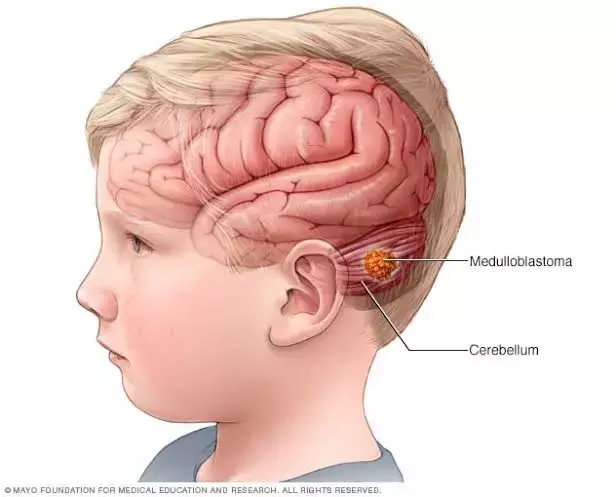- Home
- Medical news & Guidelines
- Anesthesiology
- Cardiology and CTVS
- Critical Care
- Dentistry
- Dermatology
- Diabetes and Endocrinology
- ENT
- Gastroenterology
- Medicine
- Nephrology
- Neurology
- Obstretics-Gynaecology
- Oncology
- Ophthalmology
- Orthopaedics
- Pediatrics-Neonatology
- Psychiatry
- Pulmonology
- Radiology
- Surgery
- Urology
- Laboratory Medicine
- Diet
- Nursing
- Paramedical
- Physiotherapy
- Health news
- Fact Check
- Bone Health Fact Check
- Brain Health Fact Check
- Cancer Related Fact Check
- Child Care Fact Check
- Dental and oral health fact check
- Diabetes and metabolic health fact check
- Diet and Nutrition Fact Check
- Eye and ENT Care Fact Check
- Fitness fact check
- Gut health fact check
- Heart health fact check
- Kidney health fact check
- Medical education fact check
- Men's health fact check
- Respiratory fact check
- Skin and hair care fact check
- Vaccine and Immunization fact check
- Women's health fact check
- AYUSH
- State News
- Andaman and Nicobar Islands
- Andhra Pradesh
- Arunachal Pradesh
- Assam
- Bihar
- Chandigarh
- Chattisgarh
- Dadra and Nagar Haveli
- Daman and Diu
- Delhi
- Goa
- Gujarat
- Haryana
- Himachal Pradesh
- Jammu & Kashmir
- Jharkhand
- Karnataka
- Kerala
- Ladakh
- Lakshadweep
- Madhya Pradesh
- Maharashtra
- Manipur
- Meghalaya
- Mizoram
- Nagaland
- Odisha
- Puducherry
- Punjab
- Rajasthan
- Sikkim
- Tamil Nadu
- Telangana
- Tripura
- Uttar Pradesh
- Uttrakhand
- West Bengal
- Medical Education
- Industry
Lower MicroRNA-125a expression associated with worse prognosis in Pediatric Medulloblastomas

MicroRNA-125a expression was significantly lower in categories of pediatric Medulloblastoma (MB) patients with worse prognosis namely LC/A histology and the non-WNT/non-SHH group suggesting a pathogenetic role, Ina recent study by Hemam et al published in Childs Nervous System.
Medulloblastoma (MB) is the most common malignant pediatric brain tumor. Children aged 4 to 9 years old show the highest incidence at 44%. Studies of MB have demonstrated that mutations in cell signalling pathways are associated with specific gene expression signatures, which could be detected using relatively simple and widely available techniques. This has led to the introduction of the molecular subtyping in the 2016 World Health Organization (WHO) classification.
According to the 2021 WHO classification of central nervous system (CNS) tumors, MBs are classified based on histopathological features and molecular characteristics. According to molecular characteristics, MB is classified into four groups: WNT (wingless-related integration site)-activated MBs, SHH (sonic hedgehog)-activated MBs which are separated into TP53-mutant and TP53-wild-types, and non-WNT/non-SHH MBs, comprising group 3 and group 4 which are listed as provisional variants.
The current treatment of MB allows 5-year survival rates ranging between 50 and 90%. This wide range is multifactorial depending on age at diagnosis, the presence of metastasis at diagnosis, histological pattern, and molecular group. Moreover, current therapeutic modalities come at the expense of life-long morbidity. Therefore, the recent WHO classification has provided a base for novel therapeutic approaches that target cell signalling pathways that are activated aberrantly in MB.
MicroRNAs are small noncoding RNAs that regulate gene expression through sequence-specific binding to 3′-untranslated regions of mRNAs, resulting in translational inhibition or mRNA degradation. Some microRNAs show altered expression in many malignancies suggesting a critical role played by them in tumorigenesis.
The current study by the Egyptian researchers is the first study to report the expression profile and clinical significance of microRNA-125a in molecular groups of MB and to evaluate its prognostic significance. Fifty MB tumors were collected retrospectively and classified into three molecular groups in the study. The relation between microRNA-125a and different clinicopathological parameters showed statistically significant relation to histology and molecular groups, while there was no significant relation to age or tumour size. MicroRNA-125a was significantly lower in MB cases with LC/A histology followed by classic histology and then DNMB. It was also significantly lower in non-WNT/non-SHH molecular group than SHH-activated and TP53-wild-type. The one WNT MB case could not be included in statistical analysis.
It was also found that lower levels of microRNA-125a were associated with parameters described in the literature to have worse prognosis namely LC/A histology and non-WNT/non-SHH molecular group suggesting a pathogenetic role for microRNA-125a in these tumors. SHH-activated and TP53-wild-type MB showed 70% 5-year OS, while non-WNT/non-SHH MB showed 55% 5-year OS, consistent with the findings in literature where SHH-activated and TP53-wild-type MB proved to have a favorable outcome, while non‐WNT/non‐SHH tumors had the worst prognosis overall.
The lower levels of microRNA-125a in categories with worse prognosis could be explained by the findings in literature suggesting that it has tumor suppressor function through inhibiting proliferation, invasiveness, and metastasis.Therefore, microRNA-125a could represent a potential target for targeted therapy.
Reference
Hamam, S.M., Abdelzaher, E., Fadel, S.H. et al. Prognostic value of microRNA-125a expression status in molecular groups of pediatric medulloblastoma. Childs Nerv Syst (2023). https://doi.org/10.1007/s00381-023-05899-z
MBBS, DrNB Neurosurgery
Krishna Shah, MBBS, DrNB Neurosurgery. She did her MBBS from GMC, Jamnagar, and there after did direct 6 Year DrNB Neurosurgery from Sir Ganga Ram Hospital, Delhi. Her interests lie in Brain and Spine surgery, Neurological disorders, minimally invasive surgeries, Endoscopic brain and spine procedures, as well as research.
Dr Kamal Kant Kohli-MBBS, DTCD- a chest specialist with more than 30 years of practice and a flair for writing clinical articles, Dr Kamal Kant Kohli joined Medical Dialogues as a Chief Editor of Medical News. Besides writing articles, as an editor, he proofreads and verifies all the medical content published on Medical Dialogues including those coming from journals, studies,medical conferences,guidelines etc. Email: drkohli@medicaldialogues.in. Contact no. 011-43720751


